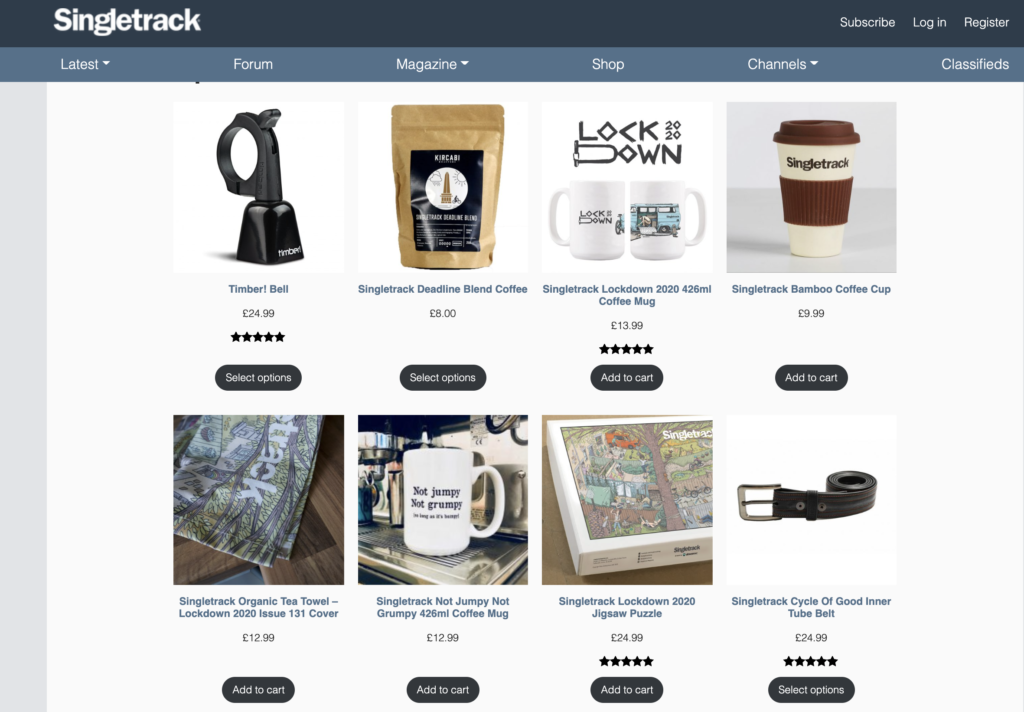The entire structure of specialist consumer media business models has changed. Just a couple of years ago newsstand sales and display advertising were the mainstay of revenues. But the combination of the uptake of digital media, high print and postal costs, and declining ad rates have meant that is not enough to sustain a niche consumer media brand. Then adding Covid and lockdown to the mix has hit retail sales and put more emphasis on e-commerce.
However, out of adversity often comes innovation. I held a virtual round table recently for leaders of independent specialist consumer publishing businesses. And was impressed by the way they had reinvented their businesses.
What strong specialist consumer brands share is a tightly knit, passionate community. And the content they create in whatever format is frequently unique and highly valued. We identified a number of key trends in how they are developing their businesses.
1. Subscriptions replacing newsstand (sometimes altogether)
Subscriptions, both print and digital, are growing across the board. And lockdown has hit W H Smith hard. Some specialist consumer publishers have already decided to stop selling copies on newsstand, as the margins are so tight. And others are teetering on the brink. Going subs-only does provide more scope to tweak paper weights. But publishers need to replace the sampling of newsstand with events, gift promotions or digital data collection (see no 7)
2. Membership and premium subs offering extra services
Membership packages include more involvement in the community than pure content subscriptions – events, online forums, free entry to awards programmes and other benefits. Greater involvement does boost loyalty and renewal rates, but membership packages are more work to run, and “members” feel they have a right to comment on the content that is created, which can be challenging for editorial teams.
3. Print becoming more premium and collectible
In specialist markets, print does still have a value. British Journal of Photography has reduced frequency and invested in production values, doubling its cover price to £20. Suitcase has found a strong market for back issues sold online, either individually or as part of themed collections. Niche content is more evergreen than news or fashion markets, so readers are happy to pay a little more and copies are more collectible.
4. Growth in curated e-commerce
Just a couple of years ago specialist publishers were wary of e-commerce as it created a conflict with advertisers. But there is a role for curated e-commerce, using editorial knowhow to pick the right products. This is working well for Singletrack.
5. Adding value by connecting readers
Many niche publishers had already expanded into live events. While virtual events are more challenging for consumer audiences, some, like Immediate media, have tapped into an appetite for paid online masterclasses in gardening and crafts. 1854 Media are exploring a platform that connects readers offering services, such as masterclasses, and those who want to buy them.
6. Collaborating with key advertisers
Specialist editorial skills and knowledge of a niche community mean that indie publishers can often create valuable marketing content for large advertisers keen to reach their audience.
7. Investing in technology and data
High growth in online traffic and the focus on subscriptions has meant more emphasis on capturing audience data and tracking behaviour. 1854 Media have made a big investment in their tech stack and hired a data scientist. This help them to become more scientific in who to prioritise for membership promotions and create a master dashboard.
8. Appealing to the community for support
Specialist audiences usually love their long-established magazines and media brands. So don’t rule out asking them to support the business or take part in a crowdfunder. Positive News appealed to its community to nominate friends to receive a free sample back issue. 1854 Media has run a couple of crowdfunding campaigns, and many of its own readers have bought shares.
This round table was set up with members of the Speciall Media Group, an online community of 120 MDs, publishers and directors in independent B2B and B2C businesses. We have an online forum hosted on Guild and run regular virtual round tables on hot topics suggested by the group. It’s free (for now) but invite only – request to join here. https://guild.co/groups/742/speciall-media-group
About the author
Carolyn Morgan has bought, sold, launched and grown specialist media businesses across print, digital and live events. A founder of the Specialist Media Show (sold in 2014) she now advises media businesses large and small on their digital strategy through her consultancy Speciall Media.
Find out more about the advice we provide for publishers

